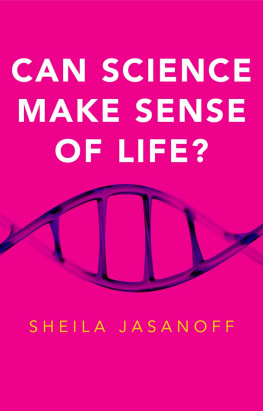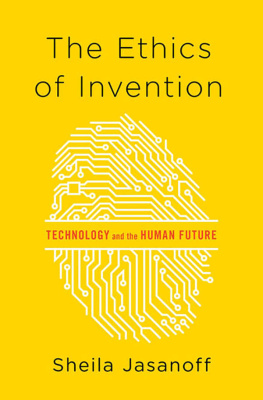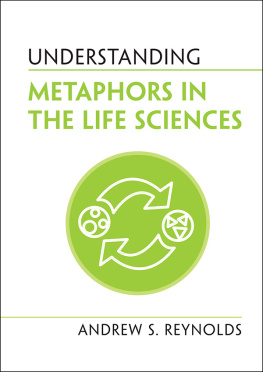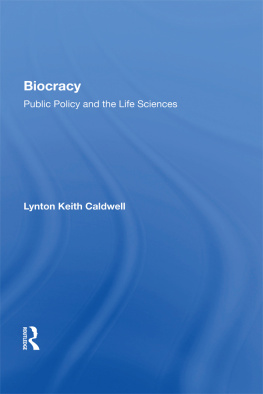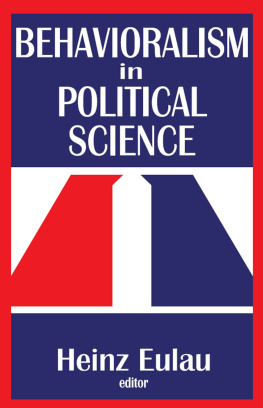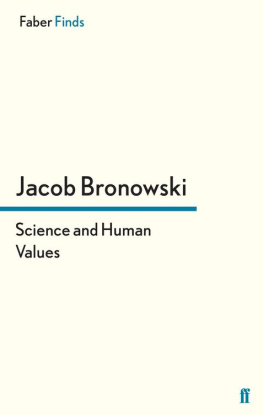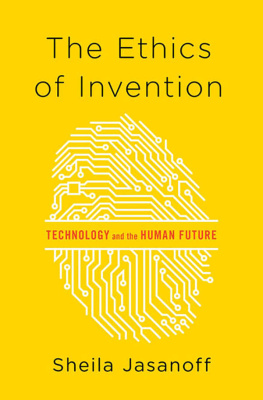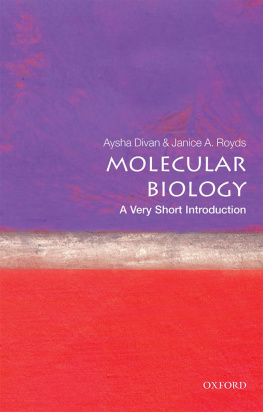
CAN SCIENCE MAKE SENSE OF LIFE?
Sheila Jasanoff
polity
Copyright Sheila Jasanoff 2019
The right of Sheila Jasanoff to be identified as Author of this Work has been asserted in accordance with the UK Copyright, Designs and Patents Act 1988.
First published in 2019 by Polity Press
Polity Press
65 Bridge Street
Cambridge CB2 1UR, UK
Polity Press
101 Station Landing
Suite 300
Medford, MA 02155, USA
All rights reserved. Except for the quotation of short passages for the purpose of criticism and review, no part of this publication may be reproduced, stored in a retrieval system or transmitted, in any form or by any means, electronic, mechanical, photocopying, recording or otherwise, without the prior permission of the publisher.
ISBN-13: 978-1-5095-2274-3
A catalogue record for this book is available from the British Library.
Library of Congress Cataloging-in-Publication Data
Names: Jasanoff, Sheila, author.
Title: Can science make sense of life? / Sheila Jasanoff.
Description: Cambridge, UK ; Medford, MA : Polity Press, 2018. | Includes bibliographical references and index.
Identifiers: LCCN 2018029799 (print) | LCCN 2018041646 (ebook) | ISBN 9781509522743 (Epub) | ISBN 9781509522705 (hardback) | ISBN 9781509522712 (pbk.)
Subjects: LCSH: Science--Philosophy. | Meaning (Philosophy) | Life.
Classification: LCC Q175.32.M43 (ebook) | LCC Q175.32.M43 J37 2018 (print) | DDC 501--dc23
LC record available at https://lccn.loc.gov/2018029799
The publisher has used its best endeavours to ensure that the URLs for external websites referred to in this book are correct and active at the time of going to press. However, the publisher has no responsibility for the websites and can make no guarantee that a site will remain live or that the content is or will remain appropriate.
Every effort has been made to trace all copyright holders, but if any have been overlooked the publisher will be pleased to include any necessary credits in any subsequent reprint or edition.
For further information on Polity, visit our website: politybooks.com
Acknowledgments
Even a short book comes into the world carrying many unseen debts, and words alone are not sufficient to acknowledge them properly, though words must do. I must thank, first of all, Jonathan Skerrett at Polity for encouraging me to write this book in the first place and for his patience during the inevitable ups and downs of seeing the project through to completion. I am grateful to Sarah Dancy for her careful editing and Neil de Cort and the Polity production team for their invaluable backstage help. The book also represents years of research support from the US National Science Foundation, in particular under Award No. SES-1058762, as well as grants from the Greenwall Foundation and the Faraday Institute at the University of Cambridge. My thanks are due as well to Shana Ashar for the unfailing administrative support she provides in every aspect of my professional life.
Conceptually, the book benefited enormously from years of conversation with the students who have enlivened my course on bioethics, law, and the life sciences at the Harvard Kennedy School. I owe a special debt to my colleagues on the Harvard Embryonic Stem Cell Oversight Committee, and to the scientists whose work we oversee, for sharpening my understanding of what is at stake in governing the moving frontiers of the life sciences and technologies. Words seem least adequate for thanking Stephen Hilgartner and J. Benjamin Hurlbut, two friends whose critical reading greatly improved the manuscript, but who are, more importantly, the interlocutors without whose answering enthusiasm my authorial imagination would long since have failed me. Hilton Simmet offered immeasurable help with the index, but more than that he opened my eyes to the possibilities of the book as metaphor and restored my sometimes flagging confidence in the value of the project. While the book owes much of its inspiration to my students, colleagues, and friends, any errors and inadequacies are of course entirely my own.
I am fortunate to be embedded in a family of writers who give meaning to a way of life that could strike others as isolating. That it rarely feels so to me is a tribute to the five people Jay, Alan, Maya, Luba, and Nina who constantly renew my wonder at what life is and what it is for.
Prologue
In February 1943, the Nobel Prize-winning quantum theorist Erwin Schrdinger delivered three lectures at Trinity College, Dublin on the advantages of borrowing terms from physics and chemistry to describe life. Published a year later, with the provocative title What Is Life?, the short book opened with a quote from Spinozas Ethics: a free mans wisdom is, to meditate not on death but on life. Schrdinger began his own meditation in a surprising place, with a disquisition on the smallness of atoms. He went on to speculate that life itself is organized at the molecular level in terms of regularities that explain both the variety and the relative stability of biological organisms. There must be some minimal ordering device, he suggested, capable of producing the living structures that we know and are. Two sets of chromosomes, the physicist observed, one from the mother and one from the father, contain in some kind of code-script the entire pattern of the individuals future development and of its functioning in the mature state. How else to account for the infinite variety of life?
The term code-script meant for Schrdinger that some directive force in the structure of the chromosomes in a fertilized egg must determine whether the egg would develop, under suitable conditions, into a black cock or into a speckled hen, into a fly or a maize plant, a rhododendron, a beetle, a mouse or a woman (Schrdinger 1967 [1944], 21). The miracle of biology, he suggested, is that some as yet unknown regulator inside each cell controls this wealth of living forms, as different in their diversity from the physical arrangements of periodic crystals as a Raphael tapestry is from a repeating wallpaper pattern. He likened this mechanism to a bureaucratic network operating through shared rules of the game: Since we know the power this tiny central office has in the isolated cell, do they not resemble stations of local government dispersed through the body, communicating with each other with great ease, thanks to the code that is common to all of them? (1967 [1944], 79).
Schrdingers modest little book inspired a generation of young molecular biologists, most notably James Watson and Francis Crick, who cracked the code-script and so revealed the structure of lifes central office: deoxyribose nucleic acid, or DNA. But the moral implications of Schrdingers essay lay elsewhere, in his conviction that the complex and abundant phenomenon we know as life could and would yield to material analysis at molecular levels. The code, together with the subtle laws that allow it to regulate all the stations of the body, accounts for the remarkable richness of life as we know it. In the books concluding chapter, Schrdinger wondered about biologys ability to produce order from order: A single group of atoms existing only in one copy produces orderly events, marvellously tuned in with each other and with the environment according to most subtle laws (1967 [1944], 79). But who would interpret those laws to deepen our understanding of life, and with what far-reaching consequences for the future of humanity? To those questions, Schrdinger offered no answer.
The twentieth centurys great breakthroughs in the life sciences have made it increasingly more acceptable for biologists to claim ownership of the meaning of life. The origins and implications of that growing primacy deserve our attention. It is a story of arrogance in the literal, etymological sense (from Latin
Next page
